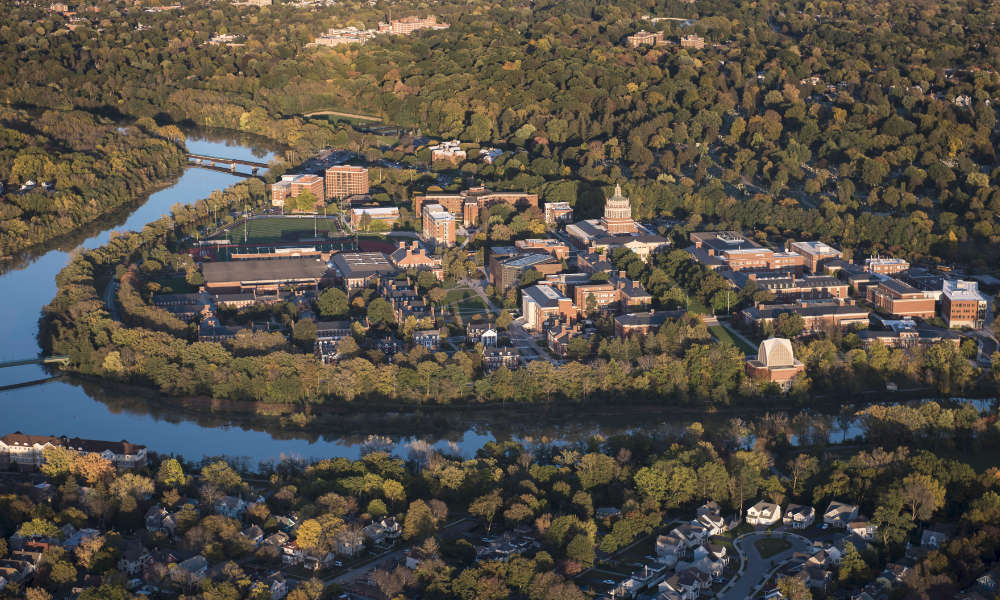The funding will support health care expansions in the region as well as research at the Laboratory for Laser Energetics.
US Senate Majority Leader Charles Schumer and Senator Kirsten Gillibrand and Representative Joe Morelle announced that the University of Rochester will receive important support from the $1.7 trillion federal fiscal year 2023 (FY23) Omnibus Appropriations Act approved by Congress and President Joe Biden last month. Support from Schumer, Gillibrand, Morelle, and former Representative Chris Jacobs was key in securing this critical funding.
The University received $1 million for the Strong Emergency Department (ED) and Patient Tower Expansion, a $640 million project that will add more than 650,000 square feet to the hospital, expanding the ED, creating single-patient rooms, enlarging the pediatric ED, and expanding diagnostic and treatment spaces. Strong’s project will also benefit from $1 million in support for Monroe County’s Pump Station project. Noyes Health’s Geneseo Ambulatory Surgical Expansion received $1.5 million for procedural tools and imaging equipment to support the addition of several specialties and virtual consulting services in the area.
With a $3 million funding increase over last year, the $86 million for the Laboratory for Laser Energetics (LLE) will propel the critical research integral for national and global security and the future of energy, bolstering the revolutionizing work that helped Lawrence Livermore National Laboratory achieve its groundbreaking nuclear fusion success in November. Created in 1970, the LLE is home to the Omega laser facility, the most powerful laser facility housed at any university and one of the most powerful of its kind in the world. The OMEGA system includes a 60-beam, high-peak-power laser, and together with the OMEGA EP, the system has kept LLE’s facilities at the cutting edge of laser-science technology.
Several provisions benefitting hospitals were included to waive an impending 4 percent to Medicare reimbursement, partially offset cuts to the Medicare Physician Fee Schedule in 2023 and 2024, extend the Medicare Low Volume and Dependent Hospital Program, create 200 new medical residency slots, and extend telehealth provisions implemented during the COVID-19 pandemic.
In response to the overall funding announcement, University of Rochester President Sarah Mangelsdorf thanked our elected officials for their tremendous support. “We are grateful to Senator Schumer, Senator Gillibrand, Representative Morelle, and Chris Jacobs for their efforts in securing these much needed resources for our community,” says Mangelsdorf. “The expansion of Strong Memorial’s Emergency Department and Noyes Health’s Ambulatory Surgical Center in Geneseo will provide desperately needed space and state-of-the-art equipment and facilities to better serve the health care needs of our region. It is also thanks to their leadership that the LLE remains the US Department of Energy’s largest university-based program in the nation, and—as the world discovered recently—much closer to the reality of fusion becoming our next safe and abundant source of clean energy. This funding also strengthens LLE’s significant contributions to national security, scientific education and leadership, and regional innovation and growth, and we are deeply appreciative of the sustained support.”
The FY23 spending package provides important increases in funding for higher education and research, including to the National Science Foundation, NASA, the National Institutes of Health, the Department of Energy Office of Science, the National Endowment for the Arts, and the National Endowment for the Humanities. The legislation also includes a $500 increase to the annual maximum Pell Grant award.





